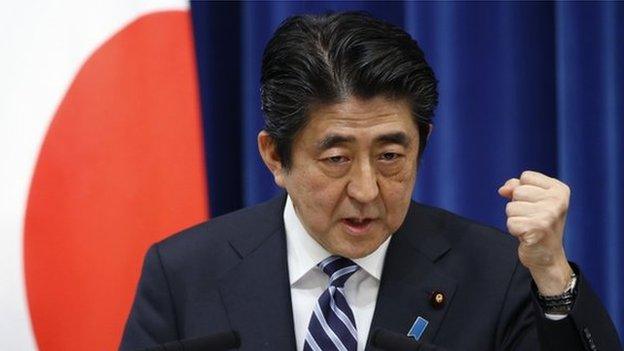Japan self-defence laws reform backed by cabinet
- Published
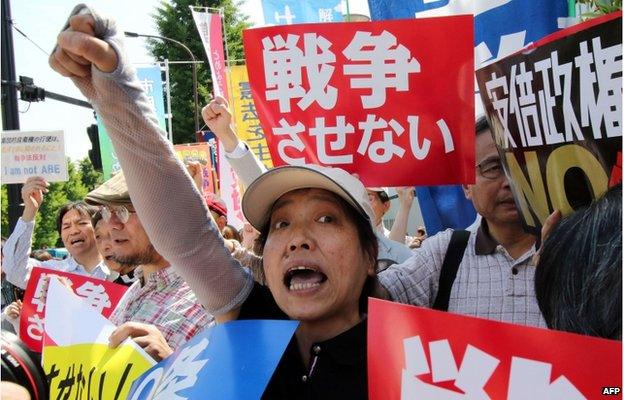
Hundreds of Japanese protested against the bills outside Japan PM Shinzo Abe's residence on Thursday
Japan has moved closer towards allowing its military to fight abroad with its cabinet approving reforms to its self-defence laws.
The reforms will still need to be approved by its parliament, the Diet, before they can be passed.
They would allow Japan to fight overseas in aid of allies under the doctrine of "collective self-defence".
The move has been criticised by some Japanese, who fear being drawn into wars, and China and South Korea.
It comes after the cabinet approved the reinterpretation of the constitution in July last year.

What is collective self-defence?
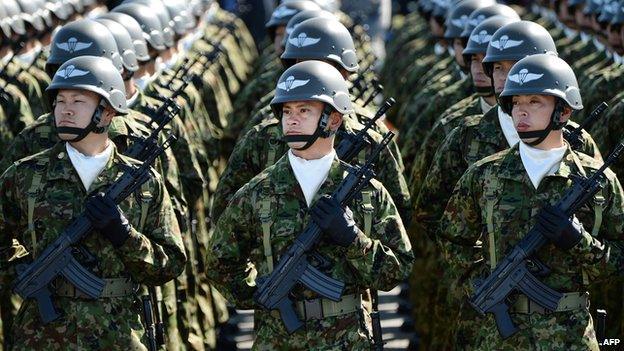
Japan's constitution bars it from using force to resolve conflicts except in cases of self-defence.
According to Kyodo news agency, the proposed bills would revise laws such that Japan's military would be able to mobilise overseas when these three conditions are met:
when a close ally is attacked and the result threatens Japan's survival
when there is no other appropriate means to repel the attack and protect Japan
provided that the military uses only minimum force

"We live in an era when no country can any longer protect itself alone," Mr Abe told a news conference.
"In the past two years, Japanese nationals have fallen victim to terrorism in Algeria, Syria and Tunisia; Japan is within range of hundreds of North Korea's ballistic missiles and the number of (fighter jet) scrambles has risen seven-fold in a decade.
"This is the reality. We should not try to ignore it."
Hundreds of people rallied against the proposals in front of Mr Abe's office on Thursday.
Protester Akemi Kitajima was quoted by AFP news agency as saying: "The bills will eventually serve as a green light to join an American war. It is clearly a violation of the constitution."
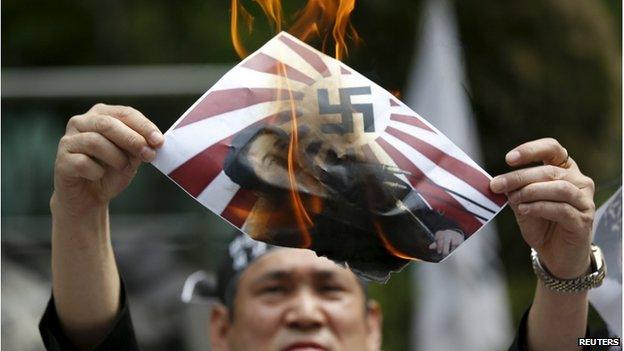
South Korean anti-Japan activists have called for Mr Abe to apologise fully for wartime atrocities
China and South Korea, whose relationships with Japan have been tense in recent months over historic wartime issues, have accused Prime Minister Shinzo Abe, who proposed collective self-defence, of attempting to re-militarise Japan.
The so-called Islamic State group captured two Japanese men in Syria and demanded a ransom from Japan in retaliation for the country's support of others fighting the group.
The eventual beheading of Kenji Goto and Haruna Yukawa shocked Japan.
- Published2 July 2014
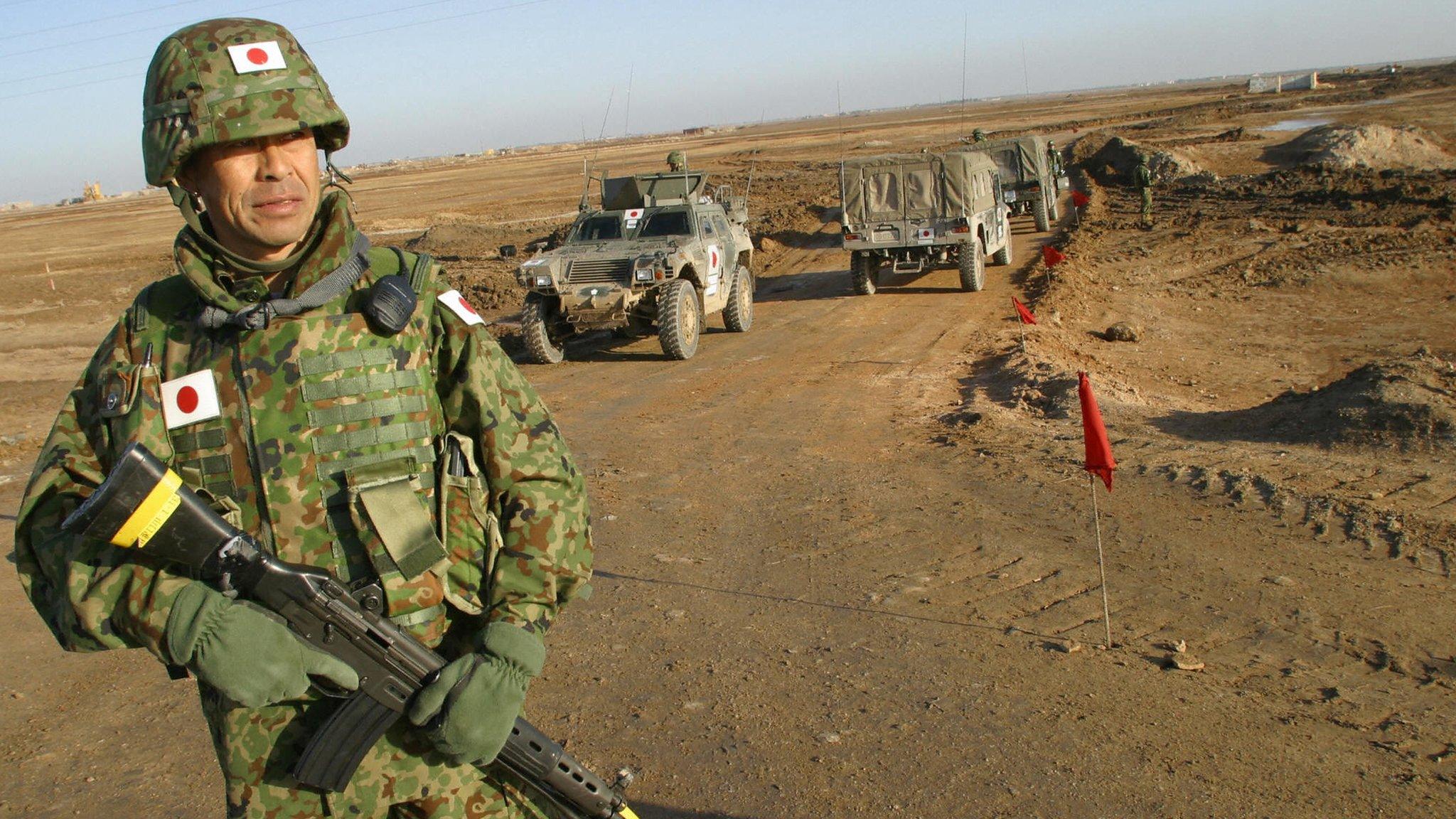
- Published1 July 2014
